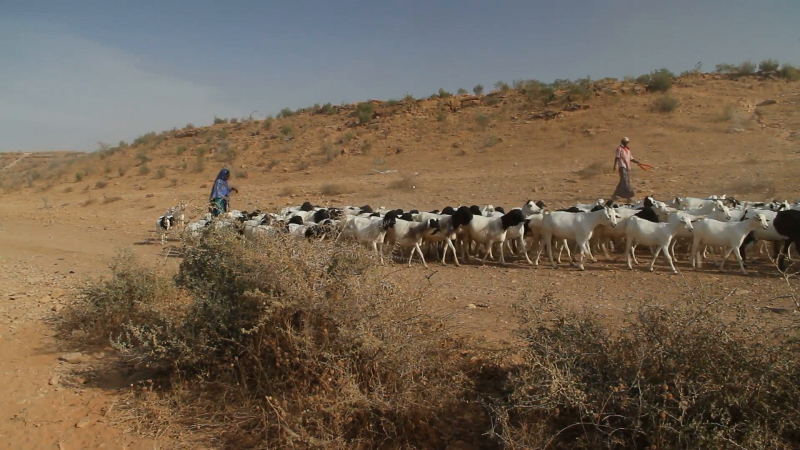The definite answer to the ones that say that we are not obligated to follow the method of the Prophet (saw) in reaching power and building a state
بسم الله الرحمن الرحيم
To Ahmad Abu Eid
Question:
Assalamu alaikum…our Sheikh…is it possible to give me a definite answer to the ones that say we are not obligated to follow the method of the Prophet (saw) in reaching power and building a state?
Answer:
Wa Alaikum Assalam wa Rahmatuallahi wa Barakatuhu,
In short, the definite answer is as follows:
Ask the one who says we are not obligated to follow the method of the Prophet (saw) in reaching power:
Ask him which evidence he looks for when he wants to make wudu? Does he not look for the evidence concerning wudu? Or does he, for example, look for the evidence of hajj? He will answer you that he will look for the evidence concerning wudu…
Then ask him if he does not look for the evidence concerning siyam (fasting), when wanting to know the rules of siyam (fasting)? Or does he look for the evidence concerning jihad to know how to fast? He will answer that he will look for the evidence concerning fasting when he needs to know the rules of fasting.
Then ask him if it is not correct that he looks for the evidence of salah (prayer), when he wants to know the ruling concerning salah (prayer)? Or does he look for the evidence concerning zakat? He will answer that he looks for the evidence concerning salah (prayer).
It is thereby clear that he for the ruling of any issue will look for its evidence in the Shariah.
Now, ask him concerning the establishment of the state, does he not look for Shari’ evidence reported from the Prophet (saw) about how to establish the state? He does not, for example, look for the evidence concerning jihad, prayer or fasting…rather he looks for the evidence concerning the establishment of the state, and the Prophet (saw) established the state once by asking for nusrah in the interaction stage. Hence the method of establishing the state is by seeking nusrah.
The question now is whether seeking nusrah is fardh (obligatory), mandub (encouraged) or mubaah (permissible)?
If seeking nusrah is fardh then we are obligated by this method in establishing the state, by studying this issue we find that:
It is an obligation (fardh) to seek nusrah, the evidence for this is that the Prophet (saw) did not change this method despite the hardship he faced when seeking it. He sought it from Thaqif and they answered him severely by making his feet bleed…and the Prophet (saw) did not change it to another method, rather he (saw) continued to seek nusrah from the tribes. He sought it from Bani Shayban, Bani Amer and so on, all in all he sought it some ten times, without any positive response. Still he did not change the method to another despite the hardship lying in it. In the usool (fundaments of fiqh) the repetition of the same thing while enduring hardship because of it, is an indication that the issue is fardh.
Hence to seek nusrah is fardh …and it is the only method the Prophet (saw) followed in establishing the state, and he continued using it until Allah (swt) honoured him with the Ansaar who gave him bayaah (swore allegiance) in the second Aqabah, from there he emigrated to Al-Madinah where he established the state.
This is the answer in short for the one who has a heart or listens and bears witness, yet the stubborn one’s argument is refuted because he is satisfied to look for the evidence concerning wudu, fasting and prayer so that he might make wudu, fast and pray…and he does not look for evidence concerning the acts he does not want to perform, while it is obligatory upon him, if he is sane, to be satisfied to look for the evidence concerning the establishment of the state if he intends to establish a state. There is only one evidence from the Prophet (saw) delivered to us by his acts and sayings and that is the seeking of nusrah, which he performed in the end of the interaction stage…and this method is fard. This is in short the definite and adequate answer to the method we use in establishing the state.
In the end I bid you Salam and ask Allah (swt) to open the gates of goodness for you.
Your brother,
Ata Bin Khalil Abu Al-Rashtah
2 Jumadal Awal 1438
30 January 2017
بسم الله الرحمن الرحيم
ان لوگوں کو واضح جواب جو یہ کہتے ہیں کہ اقتدار تک پہنچنے اور ریاست کے قیام کے لیے رسول اللہﷺ کی سنت کی پیروی کرنا ہم پر فرض نہیں
سوال:
اسلام علیکم ۔۔۔ ہمارے شیخ۔۔۔۔ کیا یہ ممکن ہے کہ ان لوگوں کے لیےمجھے ایک واضح جواب دیا جائے جو یہ کہتے ہیں کہ اقتدار تک پہنچنے اور ریاست کے قیام کے لیے رسول اللہ ﷺ کی سنت کی پیروی کرنا ہم پر فرض نہیں؟
احمد ابو عید
جواب:
وعلیکم اسلام ورحمۃ اللہ و برکاتہ،
مختصراً اور واضح جواب درج ذیل ہے:
ان سے پوچھیں جو یہ کہتے ہیں کہ ہم پر اقتدار تک پہنچنے کے لیے رسول اللہ ﷺ کی سنت کی پیروی کرنا فرض نہیں ہے:
ان سے پوچھیں کہ وہ کون سے دلائل دیکھتے ہیں جب وہ وضو کرنا چاہتے ہیں؟ کیا وہ وضو سے متعلق دلائل دیکھتے ہیں؟ یا پھر مثال کے طور پر وہ حج کے حوالے سے دلائل دیکھتے ہیں؟ وہ آپ کو جواب دیں گے کہ وہ وضو سے متعلق دلائل دیکھتے ہیں۔۔۔
پھر ان سے پوچیں کہ جب وہ روزے کے احکام جاننا چاہتے ہیں تو کیا وہ روزے سے متعلق دلائل نہیں دیکھتے؟ یا وہ جہاد سے متعلق دلائل دیکھتے ہیں یہ جاننے کے لیے کہ روزہ کیسے رکھا جاتا ہے؟ وہ جواب دیں گے کہ جب انہیں روزے کے متعلق جاننا ہوگا تو وہ اس سے متعلق دلائل دیکھیں گے۔
پھر ان سے پوچھیں کہ کیا یہ درست نہیں کہ وہ نماز کے دلائل دیکھتے ہیں جب انہیں اس کے احکام جاننا ہوتے ہیں؟ یا وہ زکوۃ کے دلائل دیکھتے ہیں؟ وہ جواب دیں گے کہ وہ نماز کے دلائل دیکھتے ہیں۔
اب یہ واضح ہوچکا کہ وہ کسی بھی مسئلہ پر احکام جاننے کے لیے شریعت سے رجوع کریں گے۔
اب ان سے ریاست کے قیام کے متعلق پوچھیں، کیا وہ نہیں دیکھیں گے ان شرعی دلائل کو جو رسول اللہ ﷺ سے ہم تک پہنچے ہیں کہ ریاست کیسے قائم کی جائے؟ وہ نہیں دیکھیں گے، مثال کے طور پر، جہاد، نماز یا روزے کے دلائل ۔۔۔بلکہ وہ ریاست کے قیام سے متعلق دلائل دیکھیں گے، اور رسول اللہ ﷺ نے ایک ہی بار ریاست قائم کی جب انھوں نے تفاعل کے مرحلے میں نصرۃ طلب کی۔ لہٰذا ریاست کے قیام کا طریقہ طلبِ نصرۃ ہے۔
اب سوال یہ رہ جاتا ہے کہ کیا نصرۃ کا طلب کرنا فرض ہے، مندوب ہے یا مباح ہے؟
اگر نصرۃ طلب کرنا فرض ہے تو ہم پر اسی طریقے کے ذریعے ریاست کا قیام لازم ہے۔ اس مسئلے کی تحقیق کرنے سے ہم یہ جان پائے کہ:
نصرۃ طلب کرنا فرض ہے۔ اس کا ثبوت یہ ہے کہ رسول اللہ ﷺ نے نصرۃ طلب کرنے کہ وجہ سے پیش آنے والے شدید مشکلات و مصائب کے باوجود اس طریقہ کار کو تبدیل نہیں کیا۔ انہوں نے طائف سے نصرۃ طلب کی اور انہوں نے اس قدر برا جواب دیا کہ رسول اللہ ﷺ کے جوتے ان کے اپنے خون سے بھر گئے۔۔۔۔ اور رسول اللہ ﷺ نے طریقہ کار تبدیل نہیں کیا بلکہ آپ ﷺ نے قبائل سے نصرۃ طلب کرنے کے سلسلے کو جاری رکھا۔ آپ ﷺ نے بنی شیبان، بنی عامر اور کئی قبائل سے نصرۃ طلب کی، مجموعی طور پر دس بار طلب کی اور ہر بار جواب نفی میں آیا۔ اس کے باوجود آپ ﷺ نے کوئی دوسرا طریقہ کار اختیار نہیں کیا جبکہ اس طریقہ کار میں شدید تکالیف کا سامنا تھا۔ فقہ کے اصول میں مشکلات و تکالیف کے باوجود ایک ہی چیز کو بار بار دہرانا ، فرض کی نشاندہی کرتا ہے۔
لہٰذا نصرۃ طلب کرنا فرض ہے۔۔۔۔ اور ریاست کے قیام کے لیے رسول اللہ ﷺ نے صرف یہی طریقہ کار اختیار کیا، اور آپ ﷺ نے اس سلسلے کو جاری رکھا یہاں تک کہ اللہ سبحانہ و تعالیٰ نے انہیں انصار سے نواز دیا جنہوں نے عقبہ پر دوسری بیعت دی، جس کے بعد آپ ﷺ نے مدینہ ہجرت کی جہاں آپ ﷺ نے ریاست قائم کی۔
وہ شخص جس کا دل سنتا ہے اور گواہی دیتا ہے، اس کے لیے یہ مختصر جواب ہے۔ لیکن ضدی اس کا انکار کرے گا کیونکہ وہ وضو، روزہ اور نماز کے لیے شریعت کے دلائل سے مطمئن ہوتا ہے تا کہ وہ وضو، روزہ اور نماز پڑھ سکے، لیکن جو کام وہ نہیں کرنا چاہتا تو وہ اس کے دلائل نہیں دیکھتا اگرچہ وہ کام اس پر فرض ہے اگر وہ ہوش مندہے۔ اس پر لازم ہے کہ وہ ان دلائل کو دیکھے جو ریاست کے قیام سے متعلق ہیں اگر وہ اس کا قیام چاہتا ہے۔ ہمیں رسول اللہ ﷺ کے اقوال اور اعمال سے صرف ایک ہی دلیل ملتی ہے اور وہ ہے نصرۃ طلب کرنا، جو انہوں نے تفاعل کے آخری مرحلے میں کرنا شروع کیا۔۔۔اور یہ طریقہ فرض ہے۔ یہی مختصر اور مناسب جواب ہے اُس طریقہ کار کا جو ہم ریاست کے قیام کے لیے استعمال کرتے ہیں۔
آخر میں آپ کو سلام پیش کرنا ہوں اور اللہ سبحانہ و تعالیٰ سے دعا کرتا ہوں کہ آپ کے لیے خیر کے دروازے کھول دے۔
آپ کا بھائی،
عطاء بن خلیل ابو الرشتہ
2 جمادی الاول 1438 ہجری





